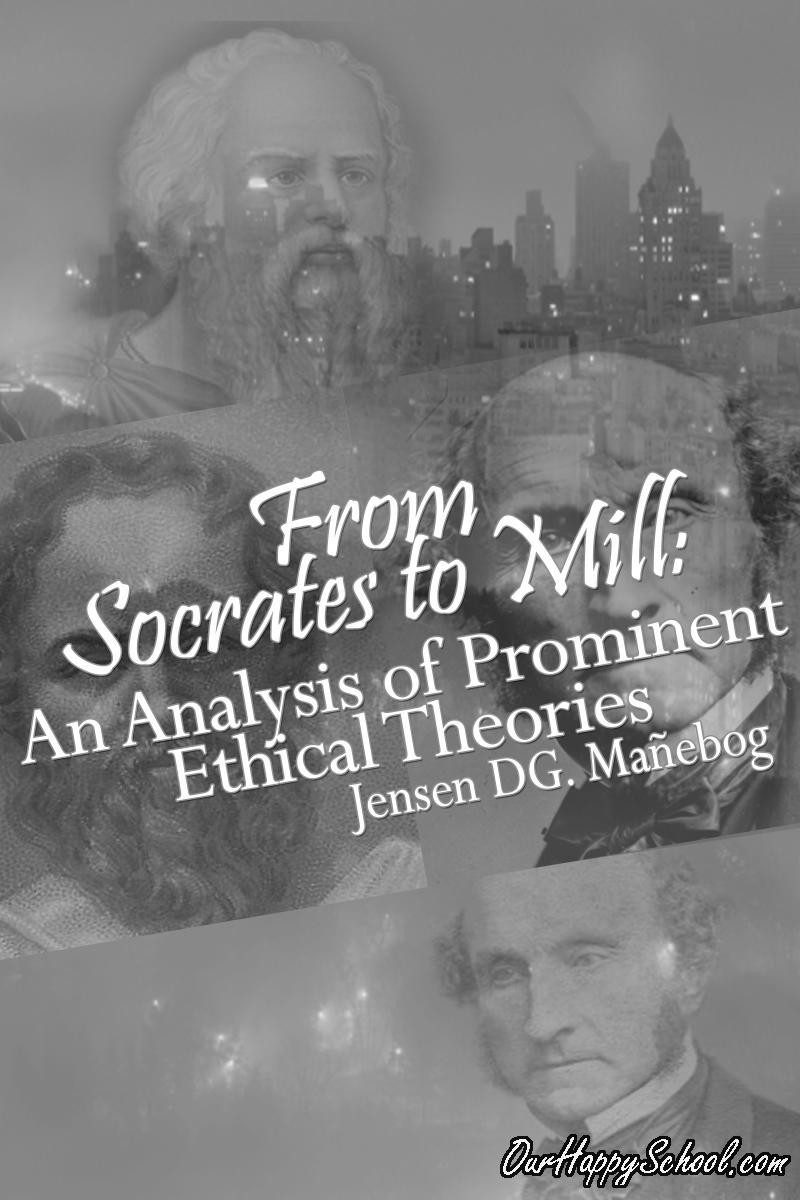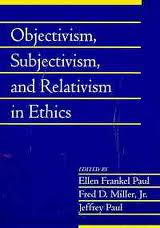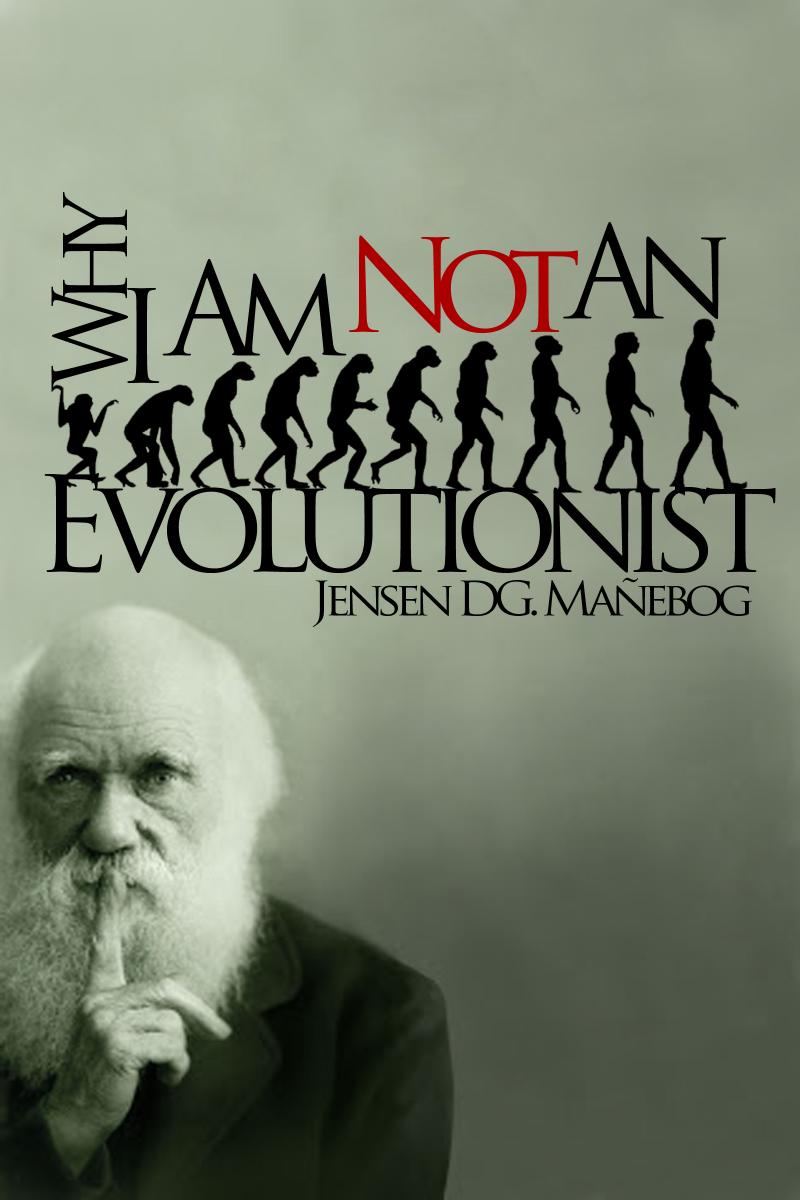Sponsored Links
ETHICS: A Syllabus
Some Features of this Course Outline in Ethics in Philosophy (Moral Philosophy):
1. It is compatible with schools' distance (online) education program—all of the readings are accessible through internet at www.OurHappySchool.com. (Readings can be found by just searching their title through the site’s own search engine.)
2. The syllabus contains only few lessons—that much time may be utilized for various class activities and evaluation.
3. Nothing in the prescribed readings opposes the precepts upheld by sectarian and non-sectarian schools.
4. The articles/lectures philosophically discuss the ethical theories advocated by evolution, scientism, atheism, and other ethical foundations.
5. There are ‘Suggested Activities’ for each lesson that include ‘Assignment for next topic’ which prepares students for the next lecture. Some suggested activities allow them to internalize the lessons.
6. This syllabus itself is available online.
WEEK 1
I. SPECIFIC OBJECTIVES:
To state the significance of moral problem in philosophical thought; to review historical developments in Ethics as a philosophical discipline; to define some basic terms in Ethics
II. TOPICS/SUBJECT MATTER:
LESSON 1: ETHICS: AN INTRODUCTION
The Significance of moral problem in philosophical thought; A ‘Review of Related Literature’; Definition of some terms in Ethics
III. READING/S:
Internet article: “Ethics 101: A primer”
site: www.OurHappySchool.com (the article can be found by searching its title through the site’s own search engine)
And (Optional): Professor’s introductory lecture
IV. SUGGESTED ACTIVITIES:
A. Discussion of the prescribed reading (“Ethics 101: A Primer”); Instructing the students to answer any or all of the 'Guide Questions' in the online reading.
B. Assignment for next topic: Read in the site the lecture for next topic (“What moral theory…”); In the comment section below the lecture, answer Guide Question # 2 (2-3 sentences only; to be checked by the Prof./Asst. Monitor); Bring a printed copy of the lecture in class.
V. EVALUATION: Automated Online Fun Quiz Games:
»
WEEK 2
To give guidelines on how to choose a moral theory to follow; to enumerate some facts about morality; to identify some characteristics of a good moral theory
II. TOPICS/SUBJECT MATTER:
LESSON 2: GUIDELINES in CHOOSING a GOOD MORAL THEORY
The (6) Features of morality; The (7) Characteristics of a good moral theory
III. READING/S:
site: www.OurHappySchool.com (the article can be found by searching its title through the site’s own search engine)
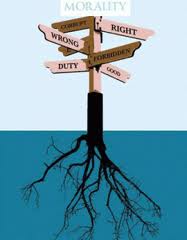
IV. SUGGESTED ACTIVITIES:
A. Review of the last topic; Discussion of the prescribed reading (“What moral theory…”)
B. Assignment for next topic: Read in the site the reading for Lesson 3; In the comment section below the lecture, state why the lecture is important (2-3 sentences; to be checked by the Prof./Asst. Monitor); Bring a printed copy of the lecture in class.
V. EVALUATION: (Professor’s discretion)
WEEK 3-4
I. SPECIFIC OBJECTIVES:
To enumerate the secularists’ various explanations on undeniable facts about morality; to identify the flaws of secularists’ explanations; to comparatively assess the theists’ explanation on moral obligation’s binding force
II. TOPICS/SUBJECT MATTER:
LESSON 3: ANALYSIS OF SECULARISTS’ EXPLANATIONS ON SOME ETHICAL FACTS
1. ‘Sense of moral obligation is just the effect of social conditioning’; 2. Moral Law as Herd instinct; 3. Moral Law is just a Social convention; 4. “What men actually do”; 5. “The behavior that happens to be useful or that pays”; The theists’ explanation on moral obligation’s binding force
III. READING/S:
site: www.OurHappySchool.com (the article can be found by searching its title through the site’s own search engine)
IV. SUGGESTED ACTIVITIES:
A. Recap of the last topic; Discussion of the prescribed reading (“Secularists’ explanations…”)
B. Assignment for next topic: Read in the site the reading for next lesson; In the comment section below the lecture, answer Guide Question #2 (2-3 sentences; to be checked by the Prof./Asst. Monitor); Bring a printed copy of the lecture in class.
V. EVALUATION:(Professor’s discretion)
WEEK 5-6
I. SPECIFIC OBJECTIVES:
To define (cultural) relativism in Ethics; to enumerate the consequences of taking Cultural Relativism seriously; to identify the flaws of the theory; to identify what one can learn from the theory; to name a culture-neutral standard of right and wrong
II. TOPICS/SUBJECT MATTER:
LESSON 4: THE CULTURAL RELATIVISM IN ETHICS
The Cultural Differences Argument; The Consequences of Taking Cultural Relativism Seriously; Why There is Less Disagreement in Ethics Than It Seems; How All Cultures Have Some Values in Common; What Can Be Learned from Cultural Relativism; A Culture-Neutral Standard of Right and Wrong; Why Thoughtful People May Be Reluctant to Criticize Other Cultures; Judging a Cultural Practice to Be Undesirable
III. READING/S:
site: www.OurHappySchool.com (the article can be found by searching its title through the site’s own search engine)
IV. ACTIVITIES:
A. Recap of the last topic; Discussion of the prescribed reading (“Cultural Relativism …”)
B. Assignment for next topic: Read in the site the reading for next lesson; In the comment section below the lecture, answer Guide Question #3 (2-3 sentences; to be checked by the Prof./Asst. Monitor); Bring a printed copy of the lecture in class.
V. EVALUATION: (Professor’s discretion)
WEEK 7-8
To define Subjectivism & Emotivism in Ethics; to enumerate the consequences of taking Subjectivism seriously; to identify the importance of reason in Ethics; to name some ‘moral facts’ & ‘proofs’ in Ethics
II. TOPICS/SUBJECT MATTER:
LESSON 5: THE SUBJECTIVISM IN ETHICS
Simple Subjectivism; Emotivism; Emotivism, Reason, and “Moral Facts”; The importance of reason in Ethics; Proofs in Ethics
III. READING/S:
site: www.OurHappySchool.com (the article can be found by searching its title through the site’s own search engine)
IV. ACTIVITIES:
A. Discussion of the prescribed reading (“Subjectivism …”)
B. Review for Midterm Exam
C. Assignment for next topic: Read in the site the reading for next Lesson; In the comment section below the lecture, answer any of the Guide Questions (2-3 sentences; to be checked by the Prof./Asst. Monitor); Bring a printed copy of the lecture in class.
V. EVALUATION: (Professor’s discretion)
WEEK 9: MIDTERM EXAMINATION
WEEK 10
I. SPECIFIC OBJECTIVES:
To enumerate the various moral foundations put forward by non-theists; to identify the flaws and disadvantages in explaining morality using these moral foundations
II. TOPICS/SUBJECT MATTER:
LESSON 6: ANALYSIS OF NON-THEISTS’ MORAL FOUNDATIONS
1. Convention, human experience, human need & human reason; 2. Utilitarianism; 3. Deontological Theory; 4. Culture: Morals are mores; 5. Right is Moderation; 6. Right is what brings pleasure; 7. Right is what is desirable for its own sake; 8. Right is indefinable
III. READING/S:
site: www.OurHappySchool.com (the article can be found by searching its title through the site’s own search engine)
IV. ACTIVITIES:
A. Recap of the previous lessons; Discussion of the prescribed reading (“Non-theists’ moral foundations…”)
B. Assignment for next topic: Read in the site the reading for next Lesson; In the comment section below the lecture, state why the lecture is important (2-3 sentences); Bring a printed copy of the lecture in class
V. EVALUATION:(Professor’s discretion)
WEEK 11
I. SPECIFIC OBJECTIVES:
To prove the superficiality of the alleged richness’ of life in atheistic-naturalistic-materialistic worldview; to identify the ironies and inconsistencies in upholding this worldview; to prove its inability to account for moral obligation; to show its inability to explain the case of compassionate tear and virtues like self-sacrifice
II. TOPICS/SUBJECT MATTER:
LESSON 7: ANALYSIS OF ATHEISTIC-NATURALISTIC-MATERIALISTIC WORLDVIEW AS AN ETHICAL FOUNDATION
The superficiality of the alleged richness’ of life in atheistic-naturalistic-materialistic worldview; The ironies and inconsistencies in upholding this worldview; The ‘leaps of faith’ in atheism; Inability to truly account for morality; The case of ‘compassionate tear’ and self-sacrifice in atheism
III. READING/S:
site: www.OurHappySchool.com (the article can be found by searching its title through the site’s own search engine)
IV. ACTIVITIES:
A. Recap of the previous lessons; Discussion of the prescribed reading (“Atheistic-naturalistic-materialistic…”)
B. Assignment for next topic: Read in the site the reading for the next Lesson; In the comment section below the lecture, answer Guide Question #3 (2-3 sentences; to be checked by the Prof./Asst. Monitor); Bring a printed copy of the lecture in class.
V. EVALUATION: (Professor’s discretion)
WEEK 12
 I. SPECIFIC OBJECTIVES:
I. SPECIFIC OBJECTIVES: To prove the Darwinist-evolutionist worldview’s inability to satisfactorily explain the origin of human life; to identify the flaws of Evolution’s implicit reasoning; to prove Darwinism’s inability to account for morality
II. TOPICS/SUBJECT MATTER:
LESSON 8: ANALYSIS OF DARWINIST-EVOLUTIONIST WORLDVIEW AS A BASIS IN MORALITY
Inability to explain the origin of life; The flaws of Evolution’s implicit reasoning; ‘Against common sense’; ‘Darwinism can not account for Morality’
III. READING/S:
site: www.OurHappySchool.com (the article can be found by searching its title through the site’s own search engine)
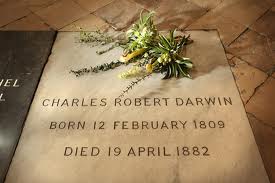
IV. ACTIVITIES:
A. Discussion of the prescribed reading (“Darwinist-evolutionist…”)
B. Assignment for next topic: Read in the site the reading for the next Lesson; In the comment section below the lecture, answer Guide Question #2 (2-3 sentences; to be checked by the Prof./Asst. Monitor); Bring a printed copy of the lecture in class.
V. EVALUATION: (Professor’s discretion)
WEEK 13
I. SPECIFIC OBJECTIVES:
To prove that science does not automatically do service to atheism; to prove that what is moral cannot be determined by science
II. TOPICS/SUBJECT MATTER:
LESSON 9: SCIENCE, ATHEISM, and MORALITY
Science does not necessarily imply atheism;‘Morality is outside the realm of science’
III. READING/S:
site: www.OurHappySchool.com (the article can be found by searching its title through the site’s own search engine)
IV. ACTIVITIES:
A. Discussion of the prescribed reading
B. Assignment for next topic: Read in the site the reading for the next Lesson; In the comment section below the lecture, answer Guide Question #1 (2-3 sentences; to be checked by the Prof./Asst. Monitor); Bring a printed copy of the lecture in class.
V. EVALUATION: (Professor’s discretion)
WEEK 14
I. SPECIFIC OBJECTIVES:
To identify the advantages in upholding theistic ethics; to prove its ability to justify moral values and accountability; to show that the cut-flower thesis makes sense
II. TOPICS/SUBJECT MATTER:
LESSON 10: THE ADVANTAGES OF THE THEISTIC ETHICS
Ability to justify moral values; Accountability in God-based morality (vs. Accountability in Naturalism); The “cut-flower thesis
III. READING/S:
site: www.OurHappySchool.com (the article can be found by searching its title through the site’s own search engine)
IV. ACTIVITIES:
A. Recap of the previous lessons; Discussion of the prescribed reading (“The Theistic Ethics …”)
B. Assignment for next topic: Read the lecture for the next Lesson; Write a Reflection Paper concerning the lecture (short bond paper, double-space, TNR, font 12); Bring a copy of the lecture in class.
V. EVALUATION: (Professor’s discretion)
WEEK 15
I. SPECIFIC OBJECTIVE/S:
To have knowledge on biblical teachings on what man is—his reason for being, what he is, how he came to be, what he is for, what is in store for him in the future, etc.
II. TOPICS/SUBJECT MATTER:
LESSON 11: THE BIBLICAL TEACHINGS ON THE NATURE OF MAN
35 questions and answers on what man is according to the Holy Scriptures
III. READING/S:
site: www.OurHappySchool.com (the article can be found by searching its title through the site’s own search engine)
IV. ACTIVITIES:
A. Discussion of the prescribed reading (“What is man…”) and of students’ Reflection Papers
B. Assignment for next topic: Read the lecture for the next Lesson; Write a Reaction Paper concerning the lecture (short bond paper, double-space, TNR, font 12); Bring a copy of the lecture in class.
V. EVALUATION: (Professor’s discretion)
WEEK 16
I. SPECIFIC OBJECTIVES:
To understand the value of helping and being concerned with each other
II. TOPICS/SUBJECT MATTER:
LESSON 12: THE VALUE OF BEING CONCERNED WITH EACH OTHER
The disadvantages of working solo
The value of brotherhood
The need for spiritual support from each other
Ways to show our brotherly love towards one another
III. READING/S:
site: www.OurHappySchool.com (the article can be found by searching its title through the site’s own search engine)
IV. ACTIVITIES:
A. Discussion of the prescribed reading (“Am I my…”) and of students’ Reaction Papers
B. Assignment for next topic: Read in the site the reading for the next Lesson; In a yellow paper, enumerate the things which God expects of the youth in His nation; Bring a printed copy of the lecture in class.
V. EVALUATION: (Professor’s discretion)
WEEK 17
I. SPECIFIC OBJECTIVES:
To identify the various teachings of God for the youth as recorded in the Bible
II. TOPICS/SUBJECT MATTER:
LESSON 13: SOME TEACHINGS FOR THE YOUTH
Some admonitions, advices, counsels, and instructions for the youth
III. READING/S:
site: www.Philippine-Guide.com (the article can be found by searching its title through the site’s own search engine)
IV. ACTIVITIES:
A. Discussion of the prescribed reading and assignments
B. Assignment (to be submitted on the examination day): Attend a Bible Study. Make a Reaction Paper on the topic discussed in the Bible Study (short bond paper, double-space, TNR, font 12). Ask the one who officiated the Bible Study to read, comment on, and sign your reaction paper.
V. EVALUATION: (Professor’s discretion)
WEEK 18: FINAL EXAMINATION
Prepared by Jensen Mañebog, AB Philo; MA Philo; EdD (units).
REFERENCES:
www.OurHappySchool.com/ Science
www.OurHappySchool.com/Social Science



